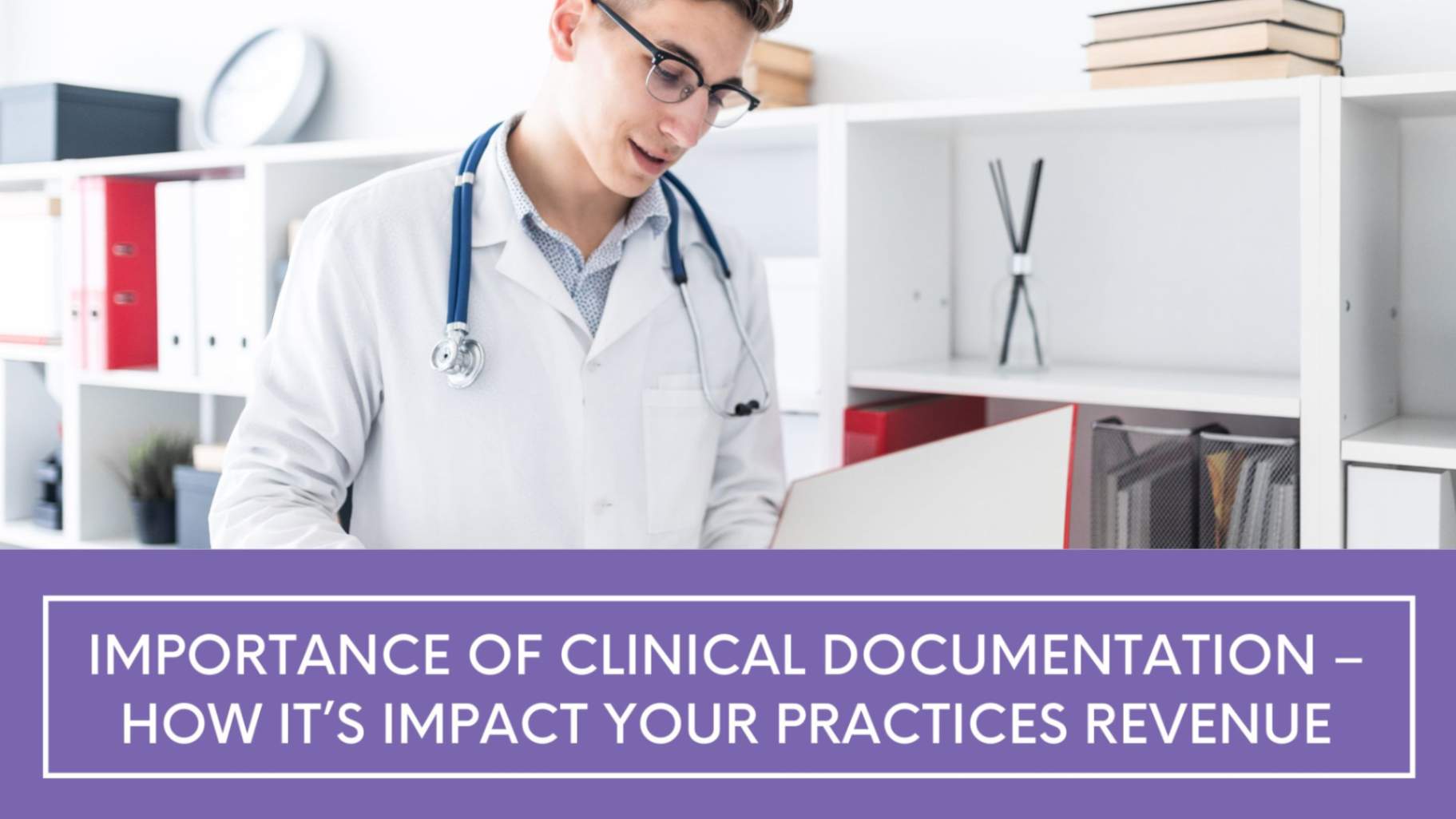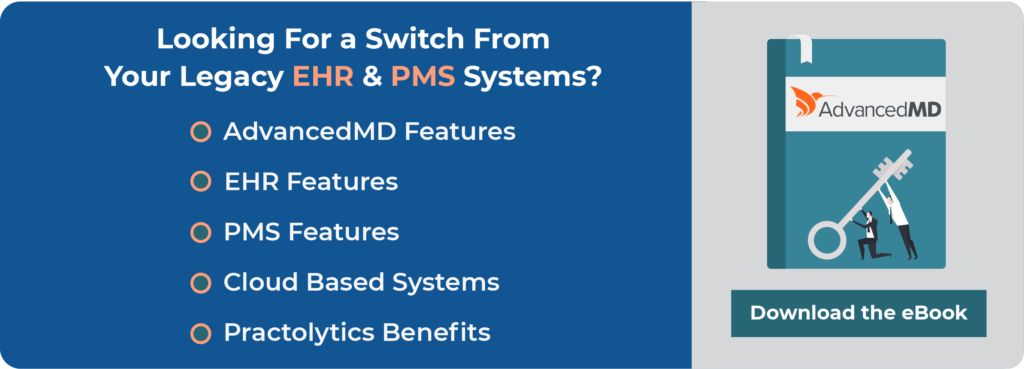Importance of Clinical Documentation –How it’s Impact Your Practices Revenue
The single most prominent fact about healthcare for patients is that it is carried out through several processes. These processes involve various units and officials of the whole healthcare matrix. And it applies to both the inpatients who require intensive care delivered within the hospital and the outpatients who need reduced intensive care provided within or outside the hospital.
While outpatient care involves more diverse levels of care than the inpatients, the underlying point for these two categories is that care is carried out through different hospital units depending on the patient’s diagnosis and the procedures involved. With this, there’s a need for adequate clinical documentation across every department of the healthcare system for all patients. It’s not just necessary. It is significant for value-based care, which is every patient’s right. This article explores clinical documentation and its importance to patients, healthcare providers, and the whole healthcare system.
Table of Contents
Importance of Clinical Documentation
Across every unit involved in healthcare, the impact and significance of good clinical documentation can never be overemphasized. It is the force that propels patient-based care until the very end. More so, in a time where the quality of clinical records is tied to reimbursement, proper documentation carries so much importance. The following are some importance of clinical documentation:
Gives Background Information for Patients’ Medical History
While a physician can gather knowledge for diagnosis and treatment through questions directed to the patient, it is usually not sufficient to make good decisions for health care. That’s why clinical documentation is essential because it details the information of patients’ medical history from the first day of consultation and admission till the last day of discharge. Thus, clinical documentation is the basis for every patients’ medical history.
Additionally, clinical documentation provides Longitudinal Patient Records (LEPRs), which show all healthcare data from several sources for each patient. These Longitudinal Patient Records intrinsically inform the decision of any clinician who picks up a patient’s file, and that ultimately improves healthcare delivery.
Communicates With Every Healthcare Unit and Personnel
Several units in the healthcare matrix don’t have direct engagement with patients but contribute significantly to the healthcare delivered. This is made possible through the availability of documentation that communicates patient data required for respective personnel’s inputs. This healthcare personnel relies on clinical documentation, and when it is accurate, complete, and detailed, it improves communication between units and eliminates ambiguity.
Palliates Risk and Eliminates Exposure
Healthcare practitioners aren’t immune to liability claims which may arise years after a patient was treated. However, there’s sufficient evidence for care and treatment in that case with thorough and adequate clinical documentation. As a result, clinical documentation mitigates exposure to such risks and serves as a defensive tool anytime it arises. Conversely, inadequate clinical documentation can expose clinicians in ways that’ll be adverse and increase the risk of failed audits and malpractice lawsuits.
Improves Service Delivery and Staff Efficiency
Clinical documentation reveals the standards every healthcare provider meets, but it also shows the areas they can improve on to better service delivery. Once these areas are identified, staff efficiency also improves. According to the Office of The National Coordinator for Health Information Technology survey, between 2015 to 2017, 82% of hospitals leveraged their documentation to improve quality services. The implication of which is that clinical documentation isn’t solely for patient care, it also serves an excellent purpose for the betterment of the healthcare system.
These, amongst several others, are the importance of clinical documentation both for patients and healthcare providers. However, for clinical documentation to be recognized as qualitative, it has to carry some unavoidable characteristics.
ALSO READ – Ways to Improve Your Healthcare Business Revenue Cycle Management
Features of Quality Clinical Documentation
The following are characteristics that give quality to clinical documentation:
- Clarity – An excellent clinical documentation has to be concise enough so there’s no gap for ambiguity which would affect the interpretation of patient information. On the other hand, misinterpretation can be adverse, so clarity has to be achieved in all documentation.
- Precision – Documenting medical records has to be to the point. The quality of care patients receive is essentially tied to precise documentation, so it has to be exact in describing the patient’s conditions.
- Consistency – Every medical engagement of patients has to be documented at all times. This allows for continuity in treatment. Once there’s an omission, such documentation is already flawed, as that implies there’s a gulf in the records.
- Timely – Time is a significant factor in any process of healthcare, particularly in clinical documentation. Timely records leverage continuity of care for every provider involved during the treatment process, and provides quality assurance to comprehensive care.
All the characteristics mentioned above should be applied across all units within the healthcare system to attain the purposes of clinical documentation.
How Healthcare Providers Improve on Clinical Documentation?
Talk to the clinical documentation and compliance experts at Practolytics, they make it simple yet comprehensively cover every aspect of documentation, ensuring compliance and continuity of care go hand-in-hand. Identifying the importance of clinical documentation is good, but knowing how to improve on it is even better. The following are some of the key aspects to keep in mind:
- Meeting industry standards of documentation
- Constantly reviewing previous records
- Peer-to-peer support among clinicians
- Constant Learning
How Does Clinical Documentation Impact Your Practice’s Revenue?
An adequately documented clinical record enhances revenue cycle management. Patients get the care they desire, and the providers also get rewarded for services delivered. This is done through documentation which allows for effective coding, efficient claims processing, swift payments, and timely reimbursement.
According to the submissions of Dr. Schillinger, 95% of appropriate and timely reimbursement is a product of proper documentation practices, while the remaining 5% is about learning government rules from a clinical documentation compliance point of view. With this, clinical documentation eliminates all gaps that might affect any part of the healthcare revenue cycle.
Additionally, there’s no denying that every hospital or healthcare provider’s revenue cycle is closely knit to patient care from scheduling to billing. However, the secondary essence of clinical documentation is to maximize revenue – the only way to keep hospital doors open. Once this process is given to professionals who deal with clinical documentation improvement (CDI), actionable approaches are instituted in order to convert billings to cash inflow.
The Bottom Line
Overall, the significance of quality clinical documentation is far-reaching. Apart from the adverse effects on patients if done poorly, neglecting the importance of clinical documentation can also bring financial and legal adversity to healthcare providers.
Over the years, Practolytics has developed clinical documentation modules to help clinicians identify key areas to cover while documenting a patient encounter, ensuring compliance, continuity of care and also mitigate the risk of decreased payments due to lack of proper documentation.
Talk to Medical Billing Expert Today — Get a Free Demo Now!






